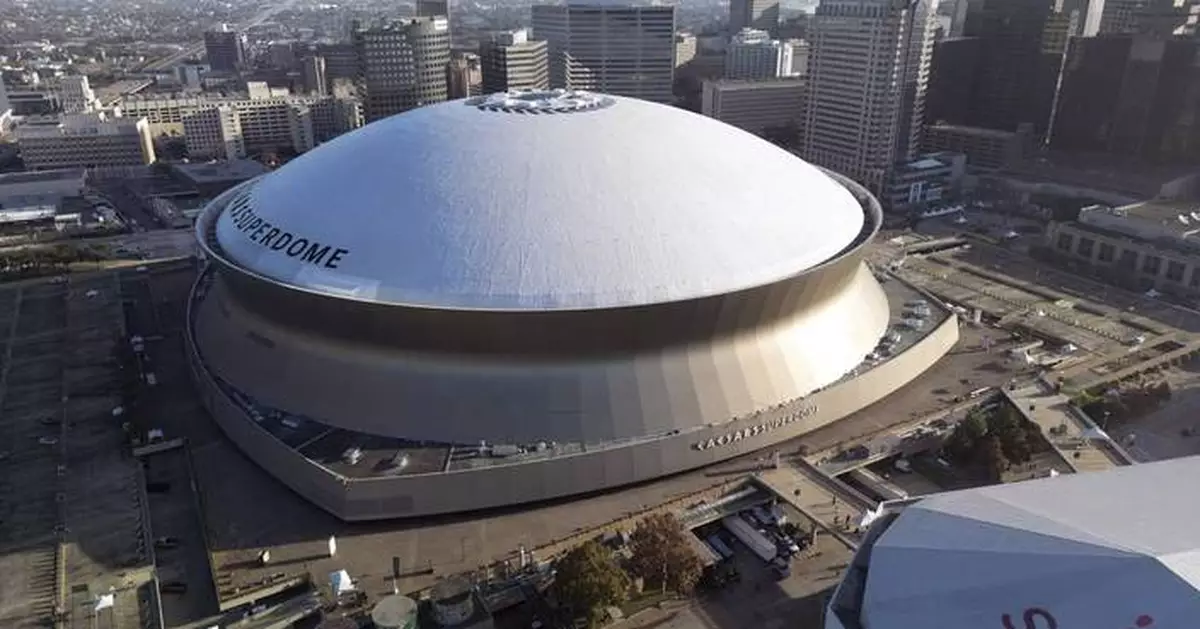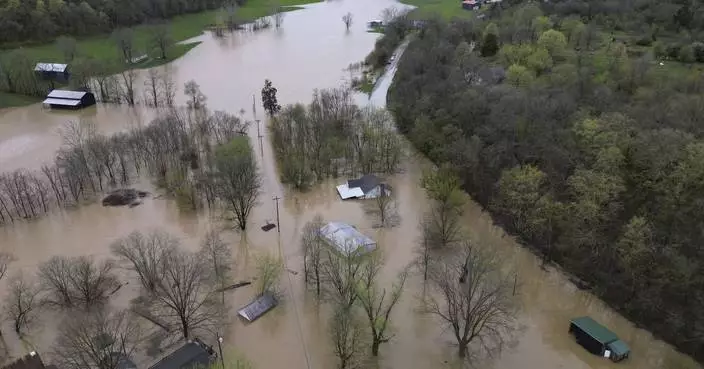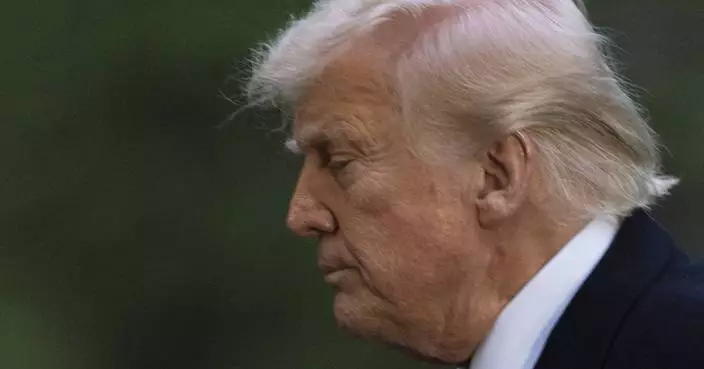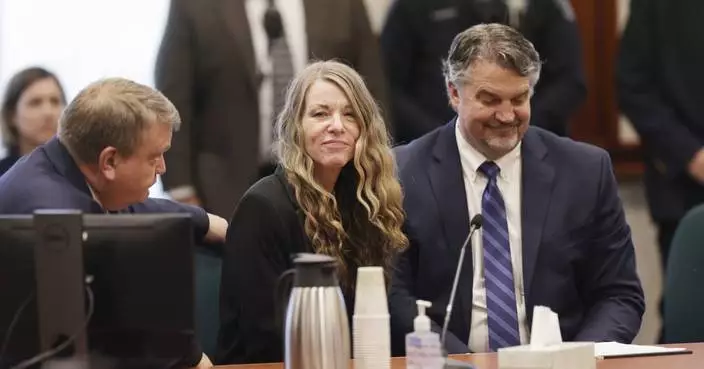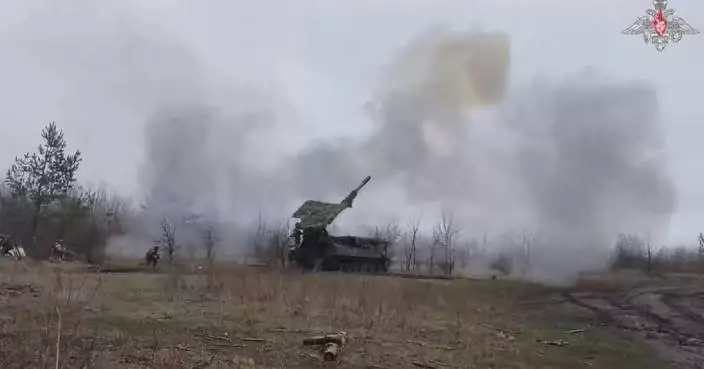NEW ORLEANS (AP) — The College Football Playoff quarterfinal at the Sugar Bowl between Georgia and Notre Dame was postponed a day because of an attack about a mile away from the Superdome early Wednesday, when authorities say a truck driver deliberately plowed into a New Year’s crowd and killed 15 people.
The game, originally scheduled for 7:45 p.m. CST at the 70,000-seat Superdome on Wednesday, was pushed back to 3 p.m. Thursday. The winner advances to the Jan. 9 Orange Bowl against Penn State.
“Public safety is paramount,” Sugar Bowl CEO Jeff Hundley said at a media briefing alongside federal, state and local officials, including Louisiana Gov. Jeff Landry and New Orleans Mayor LaToya Cantrell. “All parties all agree that it's in the best interest of everybody and public safety that we postpone the game."
The casualties occurred when a driver rammed a pickup truck into a crowd of revelers in New Orleans’ famed French Quarter early on New Year’s Day. In addition to those killed, more than 30 people were injured. The driver was killed in a firefight with police following the attack at about 3:15 a.m. along Bourbon Street near Canal Street, the FBI said.
The decision to postpone the game meant numerous traveling fans with tickets would not be able to attend. Ticket prices online plummeted in some cases to less than $25 as fans with plans to depart on Thursday tried to unload them.
“We can't get new flights,” said Lisa Borrelli, a 34-year-old Philadelphia resident who came to New Orleans with her fiance, a 2011 Notre Dame graduate.
Postponing the game “was absolutely the right call,” she said. “I completely understand.”
She said they paid more than $250 per ticket and hadn’t bothered listing them for resale yet because prices were so low.
“Of course we're disappointed to miss it and to lose so much money on it, but at the end of the day it doesn't matter,” Borrelli said. “We're fortunate enough that we'll be fine.”
U.S. Rep. Troy Carter, D-La., said the decision to postpone the game “was not done lightly.”
“It was done with one single thing in mind: public safety — making sure that the citizens and visitors of this great city, not only for this event, but for every event you come to in Louisiana, that you will be safe,” Carter added.
Landry said he had a message for those thinking, “Man, do I really want to go to the Sugar Bowl tomorrow?”
“I tell you one thing: Your governor’s going to be there,” Landry said. "That is proof, believe you me, that that facility and this city is safer today than it was yesterday.”
Darrell Huckaby, 72, of Athens, Georgia, also decided to return home Thursday instead of staying for the game. He was in a hotel room overlooking the corner where the attack took place. He was asleep when it occurred, but when he woke up, he could see pink blankets covering the bodies of the dead, and later saw them being placed in bags and loaded onto trucks bound for the Orleans Parish Coroner's office.
“It was heartbreaking," he said. “I think the first instinct of most people this morning was wanting to be home. As important as football is to our Georgia culture, for a little while, the game just didn't really seem to matter.
"And I think there was a lot of uncertainty, and I understand,” Huckaby said. “It took them a long time to decide on the game time and people kind of had to make decisions without all the information.”
He added that he would “probably eat” the $360 per ticket he paid.
Hundley said work was underway to "set up a safe and efficient and fun environment" at and around the Superdome on Thursday.
The Superdome was on lockdown for security sweeps on Wednesday morning.
Both teams spent most of the day in their hotels, holding meetings in ballrooms.
Georgia's players bused to the Superdome for a walk-through practice on Wednesday evening. As they made their way to buses on Canal Street, fans in red and black stood eight to 10 deep behind barricades, cheering them on, phones held high above their heads to capture the scene.
Around that time, at a hotel on the banks of the Mississippi River, Notre Dame players gathered with family members in a ballroom where the Rose Bowl quarterfinal between Ohio State and Oregon was being shown on television.
Notre Dame offered band members the option of flying home on Thursday instead of attending the game, and some chose to do so.
Georgia president Jere Morehead said the university confirmed that a student was among those critically injured. Morehead said the university was in contact with the student’s family.
Statements from the University of Georgia Athletic Association and from Notre Dame said both schools had accounted for all team personnel and members of official travel parties.
New Orleans City Council President Helena Moreno told WDSU-TV earlier Wednesday, before the postponement was announced, that the security perimeter around the Superdome was being "extended to be a larger zone.”
"There are more police officers who are coming in,” she said.
The Superdome, which is about 20 blocks away, also is scheduled to host the Super Bowl on Feb. 9.
The first Super Bowl after the terrorist attacks of Sept. 11, 2001, also was held in New Orleans, and there was a massive security perimeter for that game including street closures surrounding the Superdome and officers — including snipers — on the tops of surrounding high-rise buildings, as well as on the roof of the dome itself.
“We are deeply saddened by the news of the devastating incident in New Orleans,” the NFL said in a statement.
“The NFL and the local host committee have been working collaboratively with local, state and federal agencies the past two years and have developed comprehensive security plans,” the statement continued. "We are confident attendees will have a safe and enjoyable Super Bowl experience.”
AP Pro Football Writer Rob Maaddi in Clearwater, Florida, and AP Sports Writer Paul Newberry in Atlanta contributed to this report.
Get poll alerts and updates on the AP Top 25 throughout the season. Sign up here. AP college football: https://apnews.com/hub/ap-top-25-college-football-poll and https://apnews.com/hub/college-football
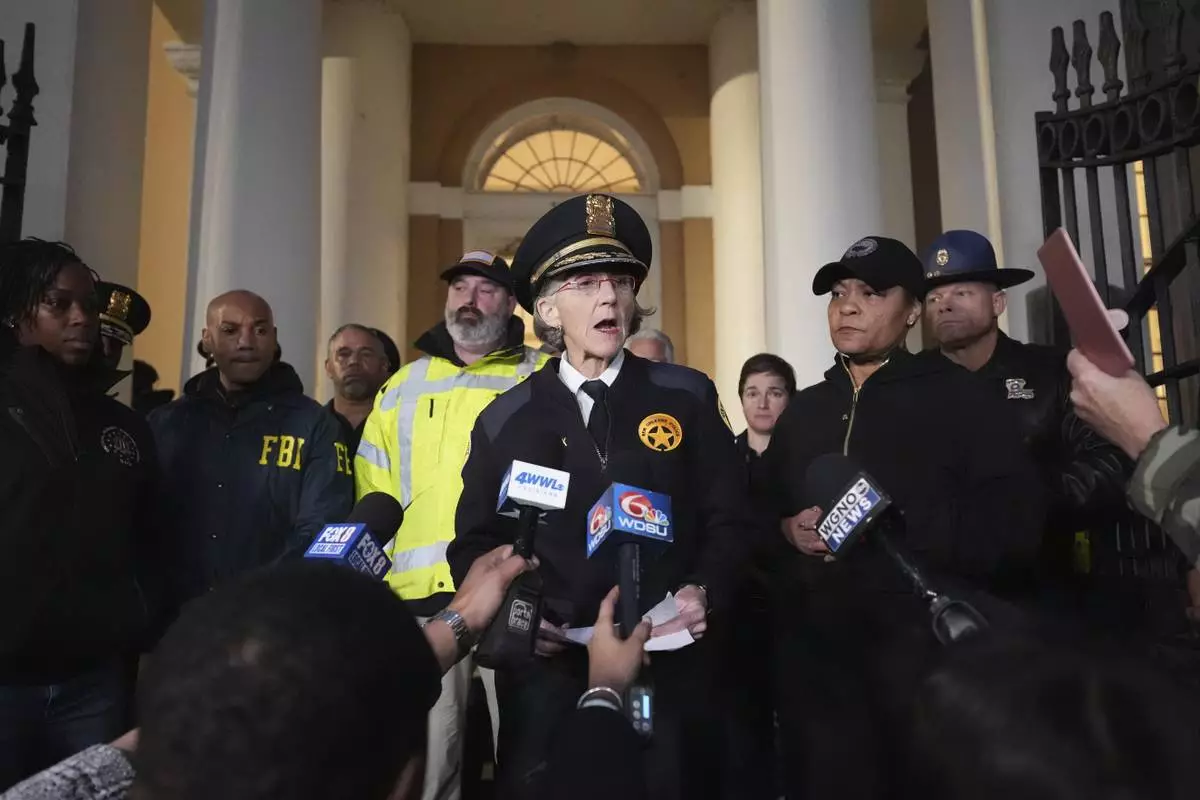
Superintendent of Police for the New Orleans Police Department Anne Kirkpatrick makes a statement after a vehicle drove into a crowd on New Orleans' Canal and Bourbon Street, Wednesday Jan. 1, 2025. (AP Photo/Gerald Herbert)
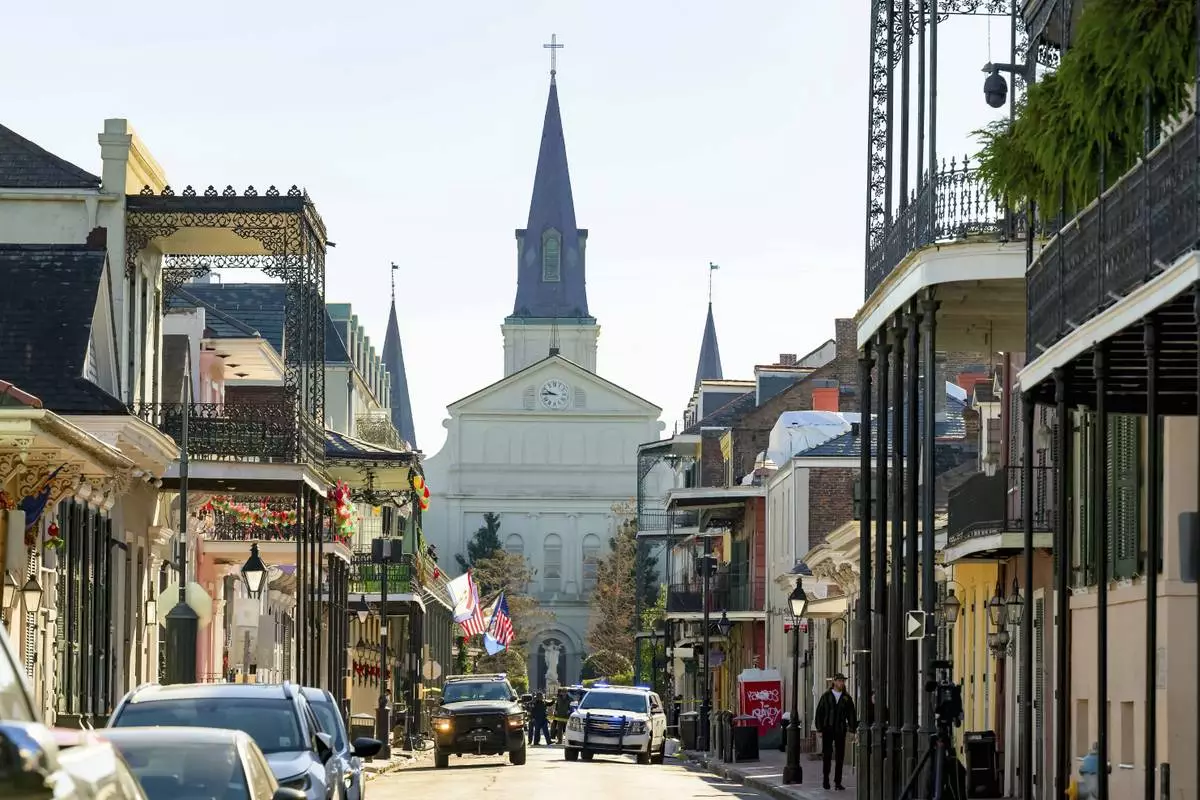
The St. Louis Cathedral is seen on Orleans St is seen in the French Quarter where a suspicious package was detonated after a person drove a truck into a crowd earlier on Bourbon Street on Wednesday, Jan. 1, 2025. (AP Photo/Matthew Hinton)
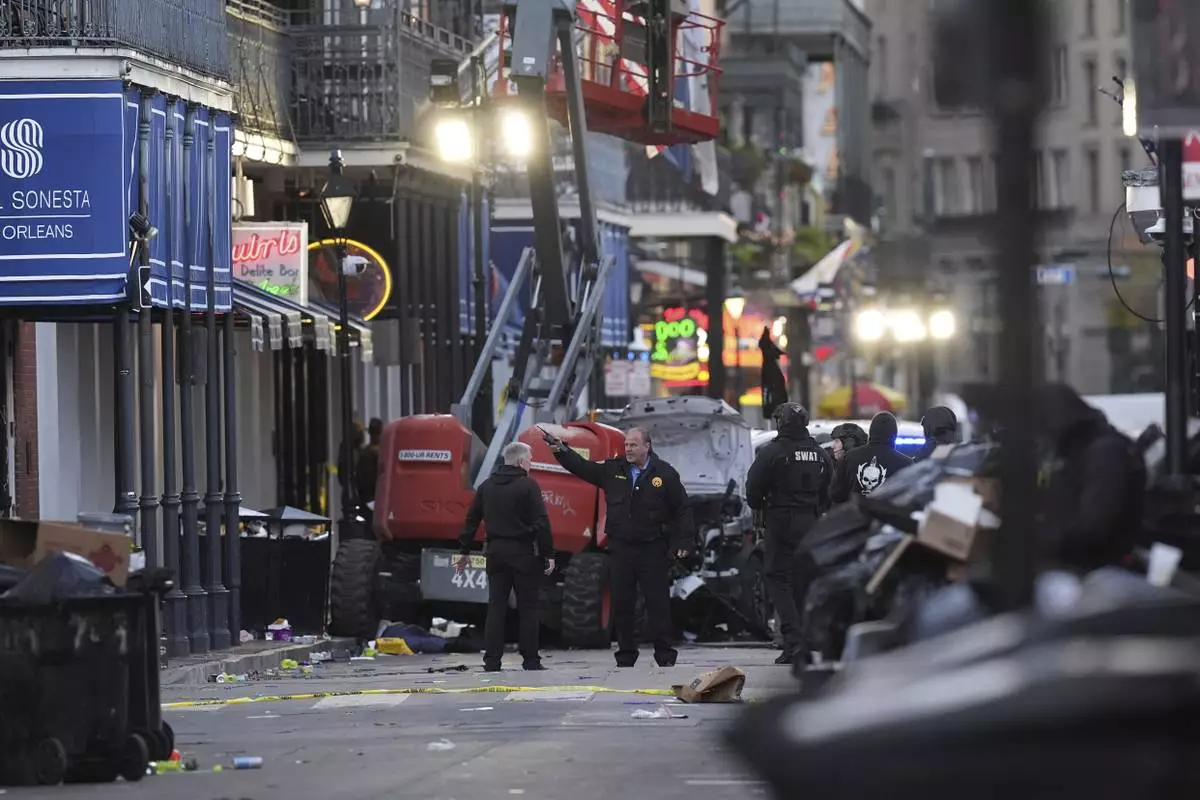
EDS NOTE: GRAPHIC CONTENT - Emergency personnel work the scene on Bourbon Street after a vehicle drove into a crowd on New Orleans' Canal and Bourbon Street, Wednesday Jan. 1, 2025. (AP Photo/Gerald Herbert)
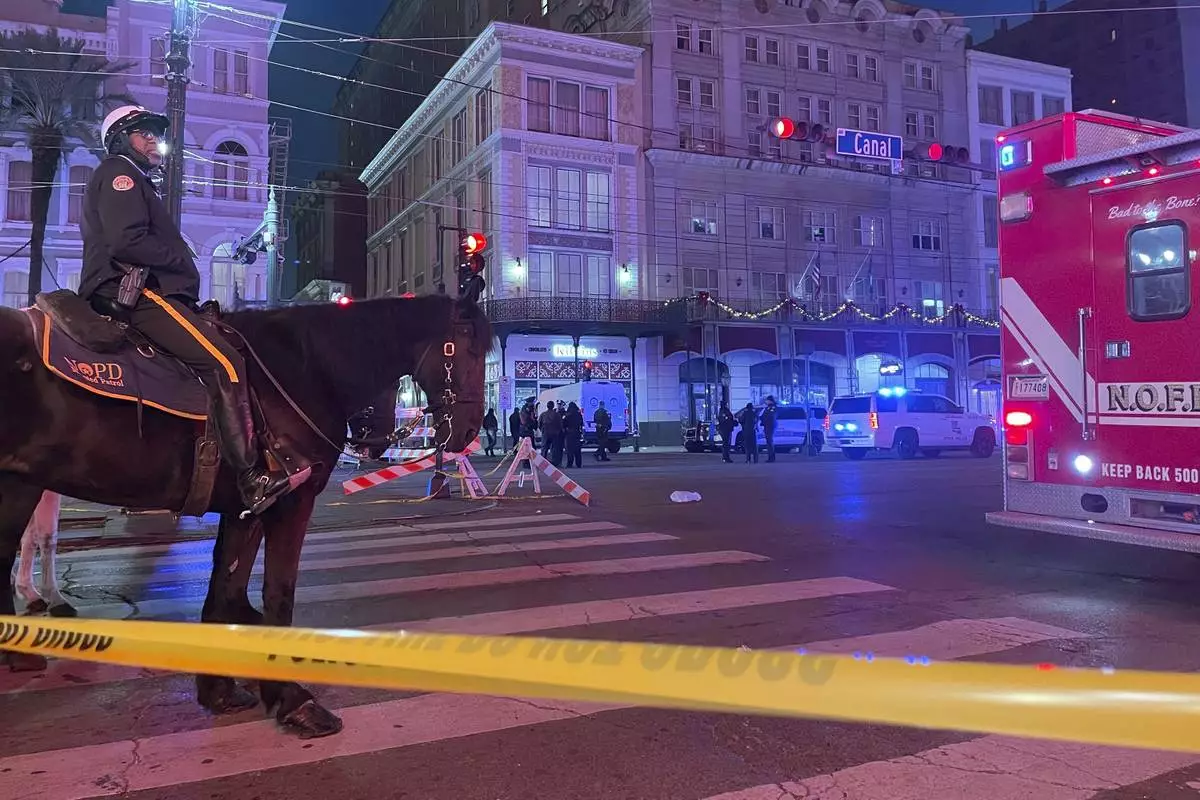
A mounted police officer arrives on Canal Street after a vehicle drove into a crowd earlier in New Orleans, Wednesday Jan. 1, 2025. (AP Photo/Kevin McGill)
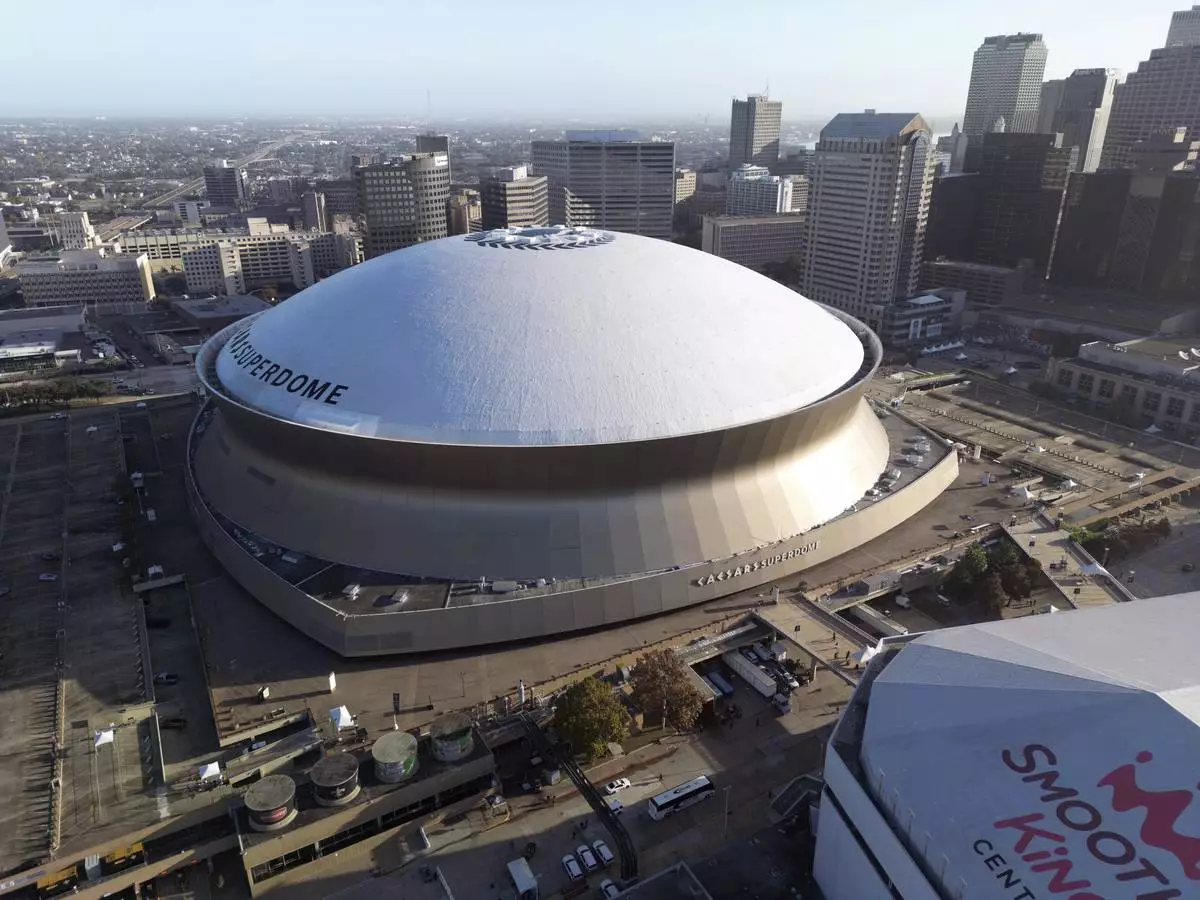
An aerial overall exterior general view of Caesars Superdome, Sunday, Dec. 15, 2024, in New Orleans. (AP Photo/Tyler Kaufman)


